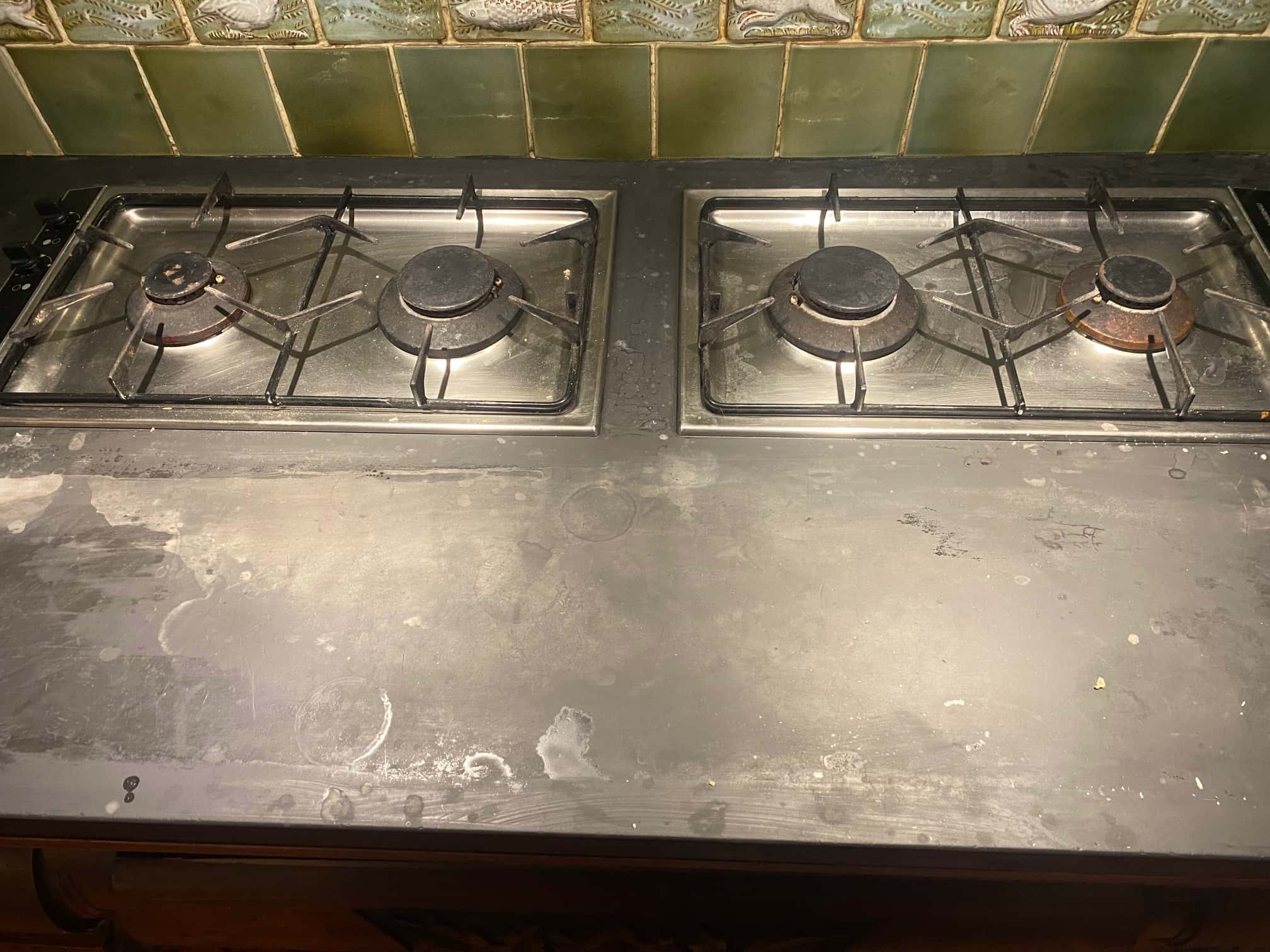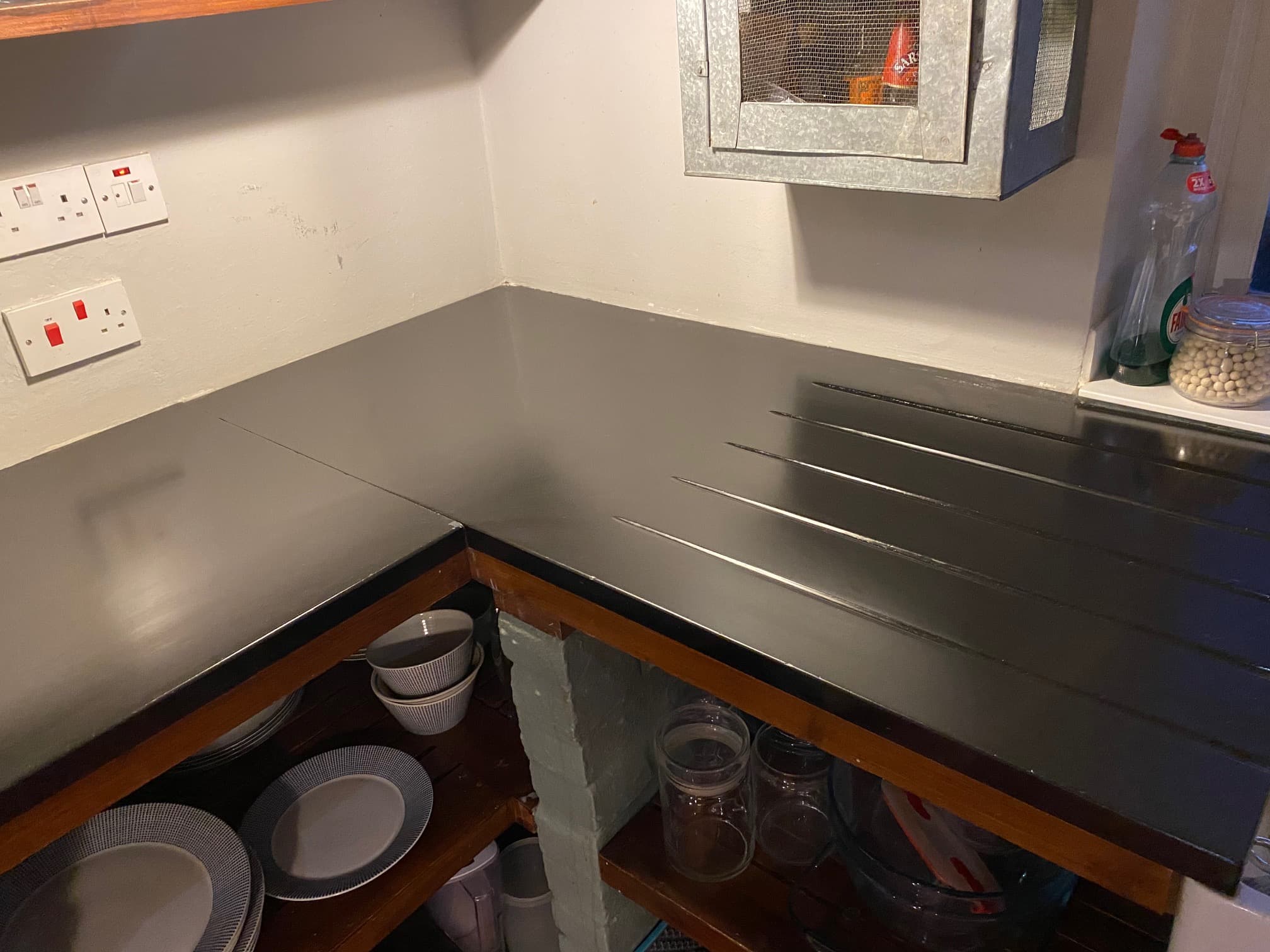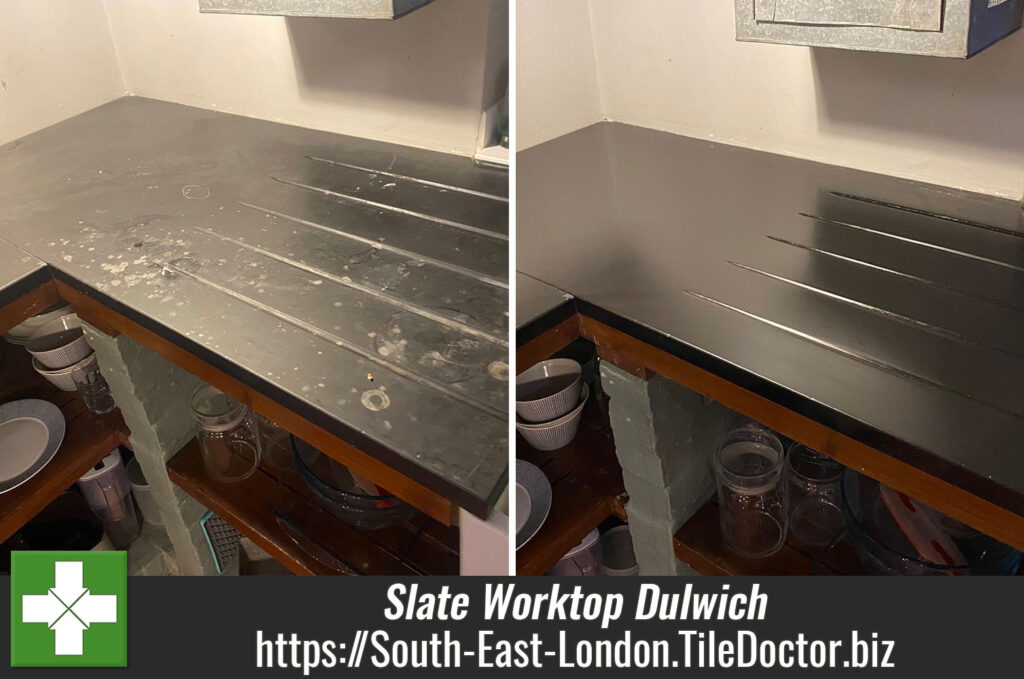I was contacted by a customer of mine from Dulwich who having been impressed with the work I did for them previously cleaning and sealing a stone floor wondered if I could obtain a similar result with the Black Slate worktop installed in their kitchen. I was due to visit the property anyway to perform a maintenance clean on the stone floor anyway so was able to look at it after that work was complete.

I don’t mention this very often but I recommend to owners of polished stone floors that they ask me to return on an annual basis to re-polish the floor and top-up the sealer, we call this a maintenance visit and it ensures the tiles look its best for much longer. The process takes a couple of hours as opposed to a full clean and seal which typically takes two days.
After maintaining the floor I turned my attention to the Black Slate worktop and could see not only had it lost its deep shine it was spotted with ring marks and stained with other contaminates from cooking. I detected that a topical sealer had been used on the Slate in the past but it was now patchy and to ensure the best result this needed to be completely removed, the stone polished and a fresh sealer applied.
 |
 |
Renovating a Stained Black Slate Worktop
To strip off the old sealer I applied Tile Doctor Remove and Go and left it to soak into the Slate for around thirty minutes. Then using a small six-inch pad fitted to a hand-held buffer scrubbed the solution into the stone to remove all the old sealer and clean up the stone. The worktop was then rinsed down with water and a cloth.
With the old sealer removed I set about tackling the ring marks and White staining which were probably caused by water, (limescale) or acids from the use of strong cleaning products or food. I find the best way to tackle deep seated staining on stone is by burnishing the stone with a series of diamond encrusted burnishing pads in different grits. I started with a 200-grit pad with water, vacuuming up the solution as I went, and then went through the remaining set of diamond pads (400, 800, 1500 and 3000 grits) to ensure I had fully honed the stone and restored its polished appearance. With worktops I used the smaller six-inch pads fitted to the hand-held buffer mentioned earlier.
Sealing a Black Slate Kitchen Worktop
Once the worktop was dry I was able to apply a fresh sealer to improve the Black colour and protecting it going forward. For the best result I started off by applying an even coat of Tile Doctor Stone Oil, a sealer that soaks into the Slate enhancing colour and improving strength.
I allowed the Stone Oil to dry for about forty minutes and then followed up with Tile Doctor Colour Grow sealer, this also enhances the colour whilst providing durable surface protection. I buffed off the final coat with a dry cotton cloth within 15 minutes of it being applied
 |
 |
Once done the Slate Worktop was completely transformed much to the delight of my customer who was relieved something could be done with it. For aftercare I recommend the use of Tile Doctor Stone Patina Spray which is a mild cleaner that will maintain the patina of the stone.



The appearance of Sealed and Polished Stone will degrade with use over time so rather than waiting for that to happen let us help you keep your tiles looking their best by setting up a regular maintenance visit with your local Tile Doctor.